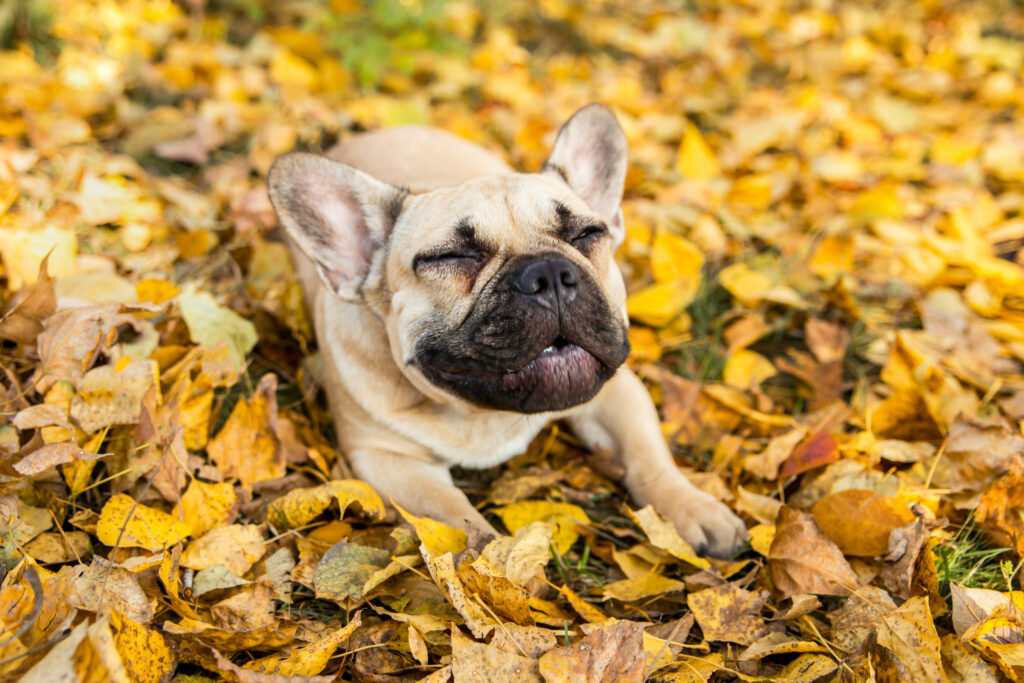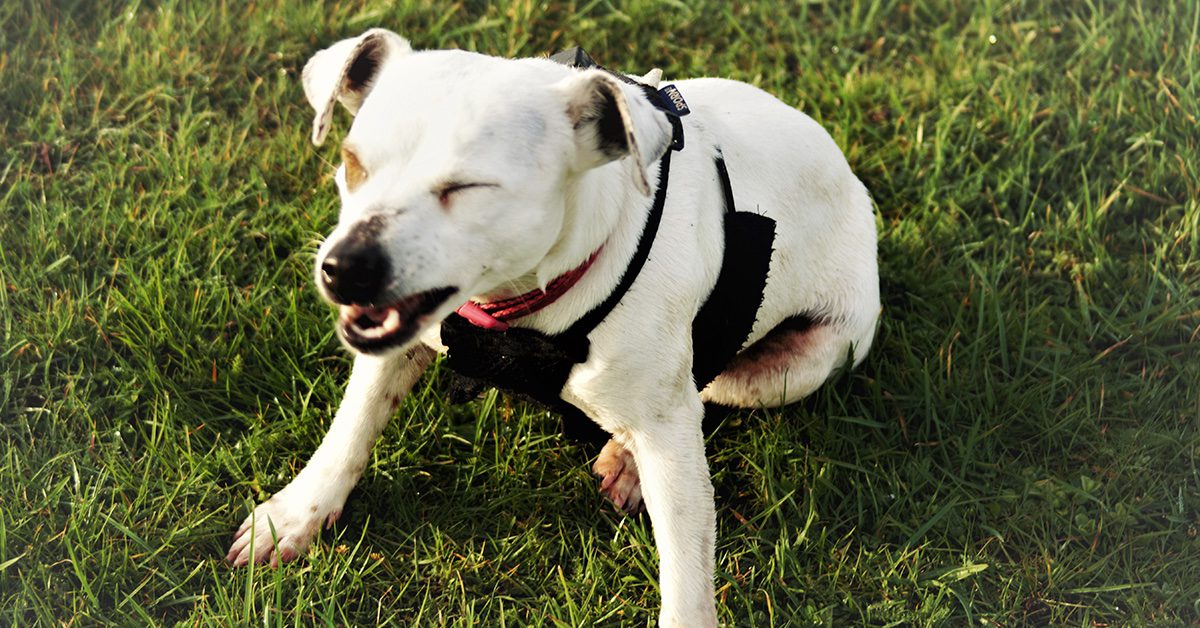Key Points
- A reverse sneeze is a muscle spasm that results from irritation of the elongated soft palate.
- While it’s generally harmless, reverse sneezing is sometimes a symptom of a more serious respiratory condition or allergy.
- Most times, you don’t need to take your dog to the vet for reverse sneezing; however, if this is the first time you’ve seen this symptom, or your dog is displaying other unusual symptoms, you might want to call your vet.
Is your dog forcefully inhaling through their nose repeatedly? This is a harmless muscle spasm known as reverse sneezing. Or, if you want to impress your veterinarian at your next appointment, you can call it paroxysmal respiration.
If this is the first time you’ve seen this symptom, it can definitely be startling. But unless your dog is displaying other unusual symptoms, you don’t need to drop everything and call your vet. Most of the time, reverse sneezing in dogs isn’t something to lose sleep over. In fact, we’ll say it again for the nervous new pet parents of the world: Reverse sneezing is rarely the result of anything serious. Your vet may tell you not to do anything at all.
To help dog parents learn more about this behavior, we’re breaking down what causes reverse sneezing in dogs, what treatments are given (if any), and what to expect at the vet.
Symptoms of reverse sneezing in dogs
You can recognize when your pup is reverse sneezing by looking for a few signs. Your dog will make a loud snorting sound, and it will seem like they’re trying to inhale while sneezing. They will inhale rapidly, stand still, and extend their head and neck. Usually, the reverse sneezing lasts between a few seconds to a minute.
On its own, this behavior can be as harmless as a regular sneeze.
Why is my dog reverse sneezing so much? Potential causes
Reverse sneezing is caused by irritation of the elongated soft palate. The irritation causes a muscle spasm at the back of the throat. Simple enough, right?
The irritation may be the result of pollen, other dog allergens, or a foreign body — like nasal mites — in the nasal cavity. Reverse sneezing in dogs is more common in breeds with long snouts and brachycephalic dogs such as boxers, bulldogs, pugs, and French bulldogs.
Rarely, reverse sneezing could be the result of more serious conditions, such as a collapsing trachea, nasal tumors or polyps, heart disease in dogs, or upper respiratory tract infection. In these cases, the reverse sneezing will be accompanied by other, more serious symptoms. If your sneezing dog is also having difficulty breathing, develops a persistent cough, or exhibits sudden changes in behavior, then you should give your vet a call.
“If there is any doubt that your dog is having breathing problems or something other than a reverse sneeze, it is important to have them seen by their veterinarian as soon as possible,” says Dr. Jamie Whittenburg, DVM, Director of Kingsgate Animal Hospital. “It can be very helpful to video record the attack so that you may show it to your veterinarian.”
Diagnosis
In most cases, reverse sneezing is a normal behavior with no particular underlying problem, and thus there’s no need to worry. However, your vet may perform the following tests to rule out more serious potential causes for reverse sneezing:
- Blood tests
- Allergy tests
- X-rays
- Rhinoscopy
Treatment for reverse sneezing

If your vet determines there’s nothing else wrong with your dog, they’ll probably tell you to do nothing. When they do provide treatment for reverse sneezing in dogs, it usually consists of:
- Antihistamines for allergies
- Antibiotics for respiratory infections
- Anti-inflammatory medication
- Decongestant medication
Recovery and care
While your dog is having an episode of reverse sneezing, you can provide comfort by gently petting them. If your vet has prescribed any medications, make sure you understand the treatment plan and aftercare instructions.
Prevention
There’s no clear way to prevent reverse sneezing, since this condition may have a host of potential causes. In general, making sure your dog leads a healthy lifestyle is the only way to reduce risk. Depending on what your vet tells you, you may consider whether your dog suffers from exercise intolerance or another condition that may require lifestyle changes.
The bottom line
Reverse sneezing is a common behavior, especially in brachycephalic breeds. Fortunately, it’s usually harmless. However, trust your instincts. If your dog starts reverse sneezing frequently and seems uncomfortable, you might want to take them to the vet for a checkup.
Don’t panic if you catch your dog reverse sneezing sometimes. If you’re still feeling nervous, you may want to consider pet insurance coverage for peace of mind. When you sign up for Pumpkin dog insurance plans, you can receive up to 90% coverage for qualifying vet bills.



